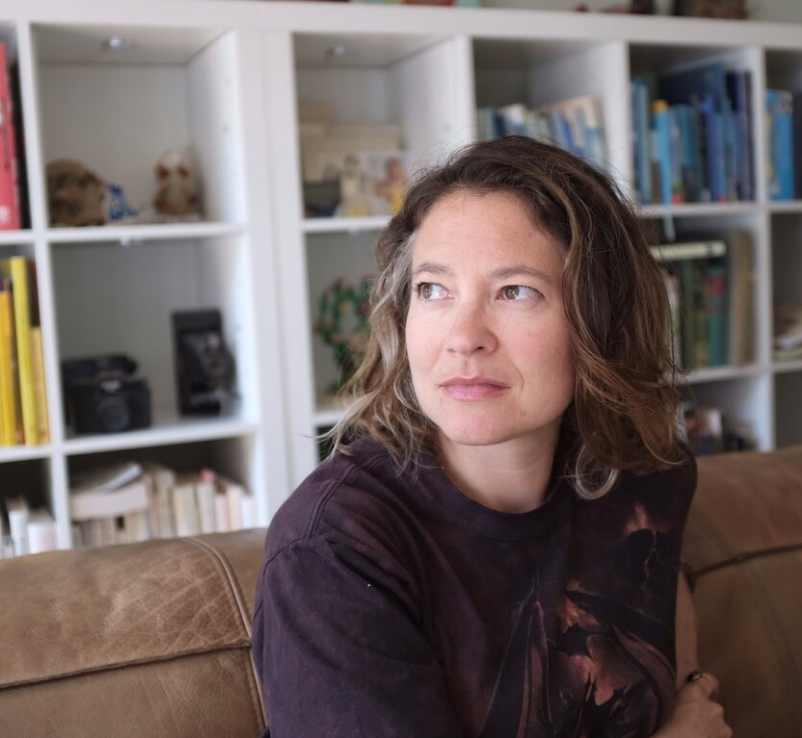MFA Student Spotlight: A Conversation with Suzanne Garcia Pino
by Emily Collins
Welcome back to CutBank’s weekly MFA student spotlight where we interview current MFA candidates at the University of Montana. This week’s spotlight is Suzanne Garcia Pino, a second year nonfiction student at work on a memoir about her ancestral ties to her home state of New Mexico. I recently sat with Suzanne where we discussed cross-genre writing, Missoula coffee, and fearless works.
Emily Collins: What drew you to the MFA in creative nonfiction program at the University of Montana?
Suzanne Garcia Pino: A friend of mine lent me her copy of Judy Blunt's Breaking Clean. It sat around my house for a while, and when I finally picked it up I was so taken with the book's tone and Judy's use of the word "lusty" to describe a weed, that I made up my mind to apply.
EC: Who are your favorite fiction writers, memoirists, poets, etc.?
SGP: I have a hard time declaring anyone "my favorite," but there are many writers whose work offers solutions for what I am trying to do. Terese Marie Mailhot is the queen of structure. Because her prose is "raw" and often about trauma, she has figured out how to create a kind of defensive rhetorical screen around her work, so that her craft can’t be dismissed or denied. My thirteen-year-old daughter turned me on to the singer to Billie Eilish, and I noticed that Billie isn't afraid to use the same phrase in different songs. I feel that way about sentences; a good one can be the perfect fit for more than one story. Some of my favorite written pieces that I reread are academic papers. Revolutionary scholars like Eve Tuck and Frantz Fanon have to put their ideas out there, without a metaphor to hide behind. I read their work to feel brave.
EC: What are you working on right now?
SGP: I'm working on a book that starts out as memoir, but sort of dissolves into fiction. I'm from New Mexico and my ancestral ties to my home go back thousands of years. 2016 and 2017 were very stressful years for New Mexico; a sort of prelude to what happened to the rest of the country in 2020, minus the pandemic. Anyway, the stress really affected my concepts of reality and time and space. My spirit was reeling. And so the memoir shifts into something that feels super and natural, but not necessarily supernatural, whatever that is.
EC: When you're not writing, what are some of your favorite hobbies, interests, etc.?
SGP: I adore my family and our time together. We ski and backpack and watch movies and we love patronizing the little drive-through coffee shops in Missoula. I am very lucky.
EC: When you look back on your journey as a writer so far, what excites you the most?
SGP: Being read is not as scary as it used to be. Less fear is very, very exciting for someone like me.
EC: Bonus Question: If you could quarantine with any writer throughout history, who would they be and why?
SGP: It seems that the promise of COVID is that I don’t have to navigate awkward conversations or interactions right now, so I’m going to take a hard pass on quarantining with anyone new, even if they are brilliant.
Suzanne Garcia Pino currently lives in Missoula, Montana, where she is a MFA candidate in the University of Montana's Creative Writing Program. You can find her most recent work in Cutbank Literary Journal, where she serves as the Nonfiction Editor, as well as Cagibi and the forthcoming issue of Dark Lane Anthology.
Emily Collins is the Interviews Editor for CutBank and a MFA in fiction candidate at the University of Montana. Her work has appeared or is forthcoming in New Orleans Review, The Florida Review, The Atticus Review, The South Carolina Review, and others. She’s been nominated for the Pushcart Prize and other anthologies. When she’s not interviewing incredible writers, she enjoys hiking and volunteering.
























































